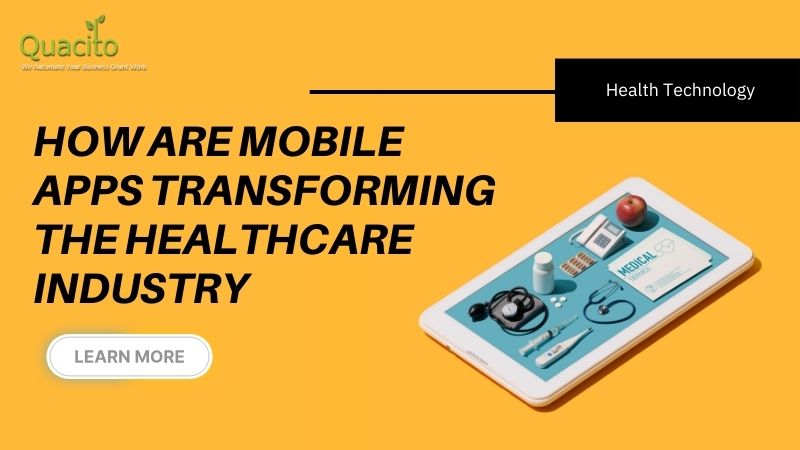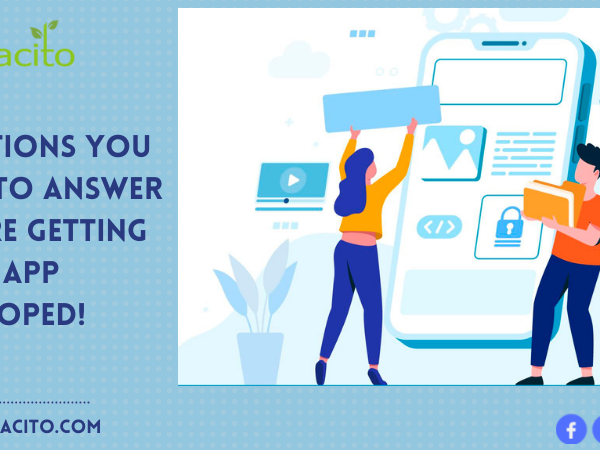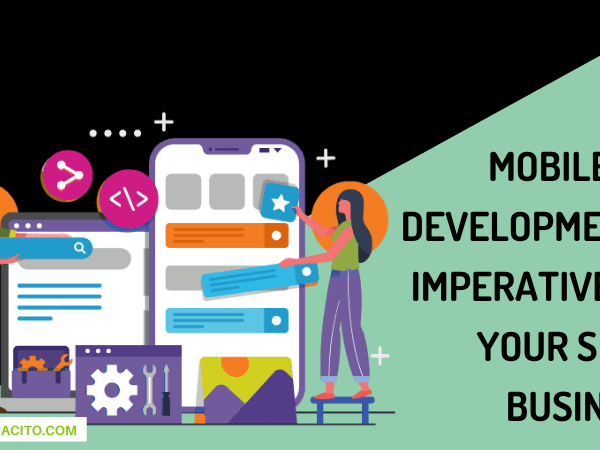
The healthcare industry has always been at the forefront of technological advancements. In recent years, the integration of mobile apps has significantly reshaped the way healthcare services are delivered and accessed. Mobile apps have emerged as powerful tools, bridging the gap between patients and healthcare providers. In this blog, we will explore how mobile apps are revolutionizing the healthcare industry and how Mobile App Development Services and healthcare industry apps are playing a crucial role in this transformation.
Enhanced Patient Engagement
Mobile apps have made it easier for patients to actively engage in their healthcare. Patients can access their medical records, schedule appointments, and communicate with their healthcare providers through mobile apps. This convenience leads to higher patient engagement and encourages individuals to take a more proactive role in managing their health. Additionally, apps can send reminders for medication, check-ups, and even provide personalized health tips, helping patients stay on track with their treatment plans.
Telemedicine and Remote Monitoring
The advent of mobile apps has brought telemedicine to the forefront of healthcare. Patients can consult with healthcare professionals from the comfort of their homes, eliminating the need for travel and reducing healthcare costs. Furthermore, mobile apps enable remote monitoring of patients with chronic illnesses. Devices connected to these apps can collect and transmit vital data to healthcare providers in real-time, allowing for timely intervention and personalized care.
Streamlined Healthcare Operations
Healthcare providers are benefiting from mobile apps as well. Administrative tasks like appointment scheduling, billing, and patient record management have become more efficient through dedicated healthcare industry apps. This not only saves time but also reduces the risk of errors and enhances the overall quality of healthcare services.
Health and Wellness Tracking
Mobile apps are not just for those with existing health conditions; they also cater to individuals looking to maintain a healthy lifestyle. Health and wellness tracking apps can monitor activities such as exercise, nutrition, and sleep patterns. They provide valuable insights, motivating users to make healthier choices and adopt a proactive approach to their well-being.
Improved Medication Management
Medication adherence is a significant challenge in healthcare. Mobile apps are addressing this issue by sending medication reminders and providing detailed information about prescribed drugs. Patients can easily access information about potential side effects, drug interactions, and dosing instructions, ensuring they take their medications correctly.
Access to Medical Information
Mobile apps serve as a vast repository of medical information. Patients can research symptoms, diseases, and treatment options through reputable healthcare apps, which can help them make informed decisions about their health. However, it’s crucial to emphasize the importance of consulting with healthcare professionals for accurate diagnoses and treatment plans.
Healthcare App Development Services
Behind the scenes, the development of healthcare apps is made possible by Mobile App Development Services. These services involve a team of experienced app developers, designers, and healthcare experts who work together to create user-friendly and secure healthcare apps. When looking to develop healthcare industry apps, it’s essential to hire the best app developers who understand the unique challenges and regulatory requirements of the healthcare sector.
Chronic Disease Management
Chronic diseases like diabetes, hypertension, and heart disease require continuous monitoring and management. Mobile apps offer comprehensive solutions for chronic disease management. Patients can input data such as blood pressure, blood sugar levels, or dietary habits, and the app can provide real-time feedback, helping individuals make lifestyle adjustments and adhere to their treatment plans.
Mental Health and Wellness
Mental health apps have gained significant traction in recent years. They provide users with tools to manage stress, anxiety, depression, and other mental health conditions. Features like mood tracking, guided meditation, and virtual counseling sessions make it easier for individuals to access mental healthcare resources discreetly and conveniently.
Healthcare Training and Education
Mobile apps are valuable for healthcare professionals as well. Medical students and professionals can access a wealth of educational resources through healthcare apps, including textbooks, research papers, and video lectures. Interactive medical training apps offer immersive learning experiences, helping healthcare providers stay up-to-date with the latest advancements in their field.
Remote Surgical Assistance
Advanced healthcare apps are even facilitating remote surgical procedures. Surgeons can use augmented reality (AR) and virtual reality (VR) apps to perform surgeries with the assistance of real-time data and 3D visualizations. This technology enables collaboration between surgeons located in different parts of the world, expanding access to specialized surgical expertise.
Read this blog: https://quacito.com/custom-software-development-for-healthcare-businesses-a-comprehensive-guide/
Healthcare Wearables Integration
The integration of healthcare wearables with mobile apps is another game-changer. Devices like fitness trackers, smartwatches, and ECG monitors sync seamlessly with healthcare apps, allowing users to track their health metrics continuously. This integration provides healthcare providers with valuable data for diagnosing conditions and tailoring treatment plans.
Enhanced Security and Privacy
Security and privacy are paramount in the healthcare industry, given the sensitivity of patient data. Mobile apps have evolved to meet stringent security standards, with robust encryption, secure authentication, and compliance with regulations like HIPAA (Health Insurance Portability and Accountability Act) in the United States. These measures ensure that patient information remains confidential and protected.
AI-Powered Healthcare
Artificial intelligence (AI) is making its mark in healthcare apps. AI algorithms can analyze medical images, detect anomalies, and assist in diagnosing diseases. Machine learning models are being trained to predict patient outcomes and suggest personalized treatment plans based on historical patient data. These AI-driven insights are revolutionizing the practice of medicine by improving accuracy and efficiency.
In conclusion, the integration of mobile apps into the healthcare industry is reshaping how healthcare services are delivered, received, and managed. With the continued development of healthcare industry apps and the expertise of Mobile App Development Services, we can expect even more groundbreaking innovations in the future. These apps have the potential to enhance patient outcomes, reduce healthcare costs, and improve overall healthcare quality. As we move forward, it’s essential for healthcare providers, developers, and regulatory bodies to work together to ensure that mobile healthcare solutions remain safe, effective, and accessible to all, ultimately benefiting both patients and healthcare professionals alike. The healthcare industry’s journey towards a digital future is well underway, and the possibilities are limitless.


